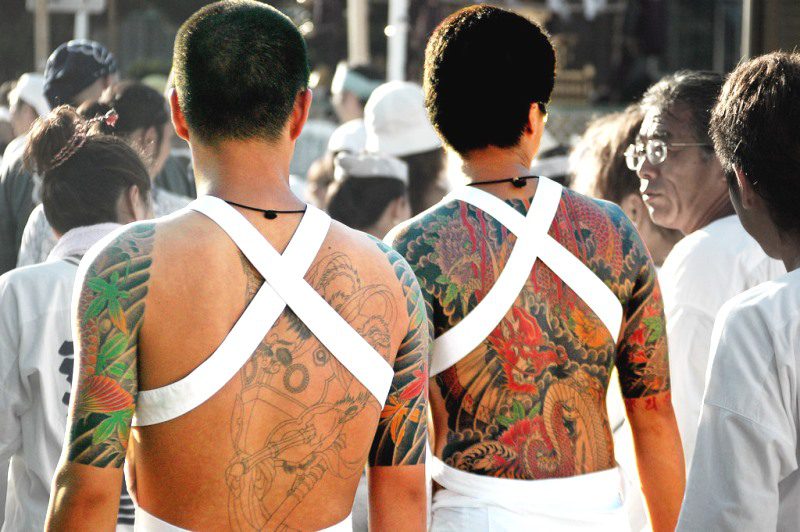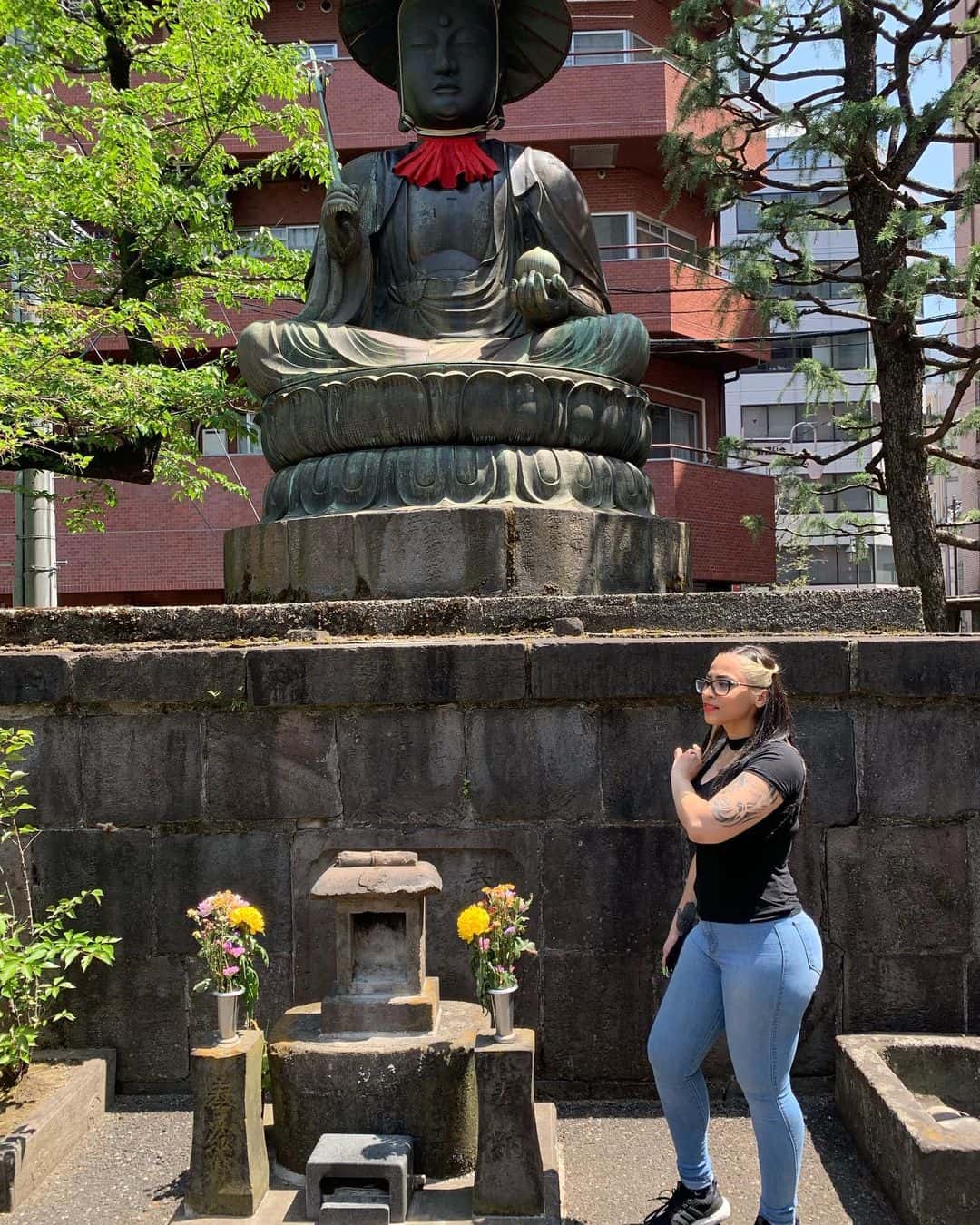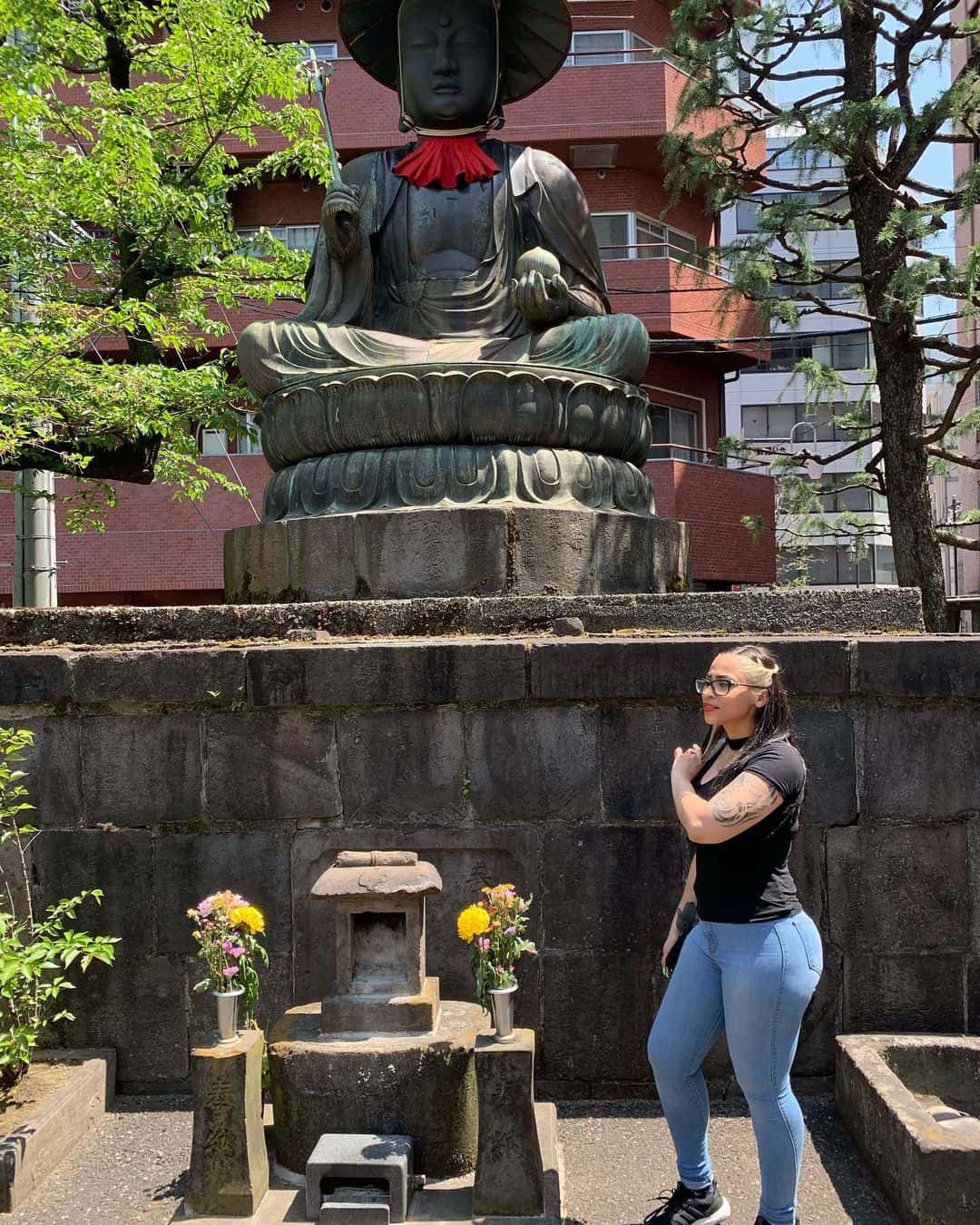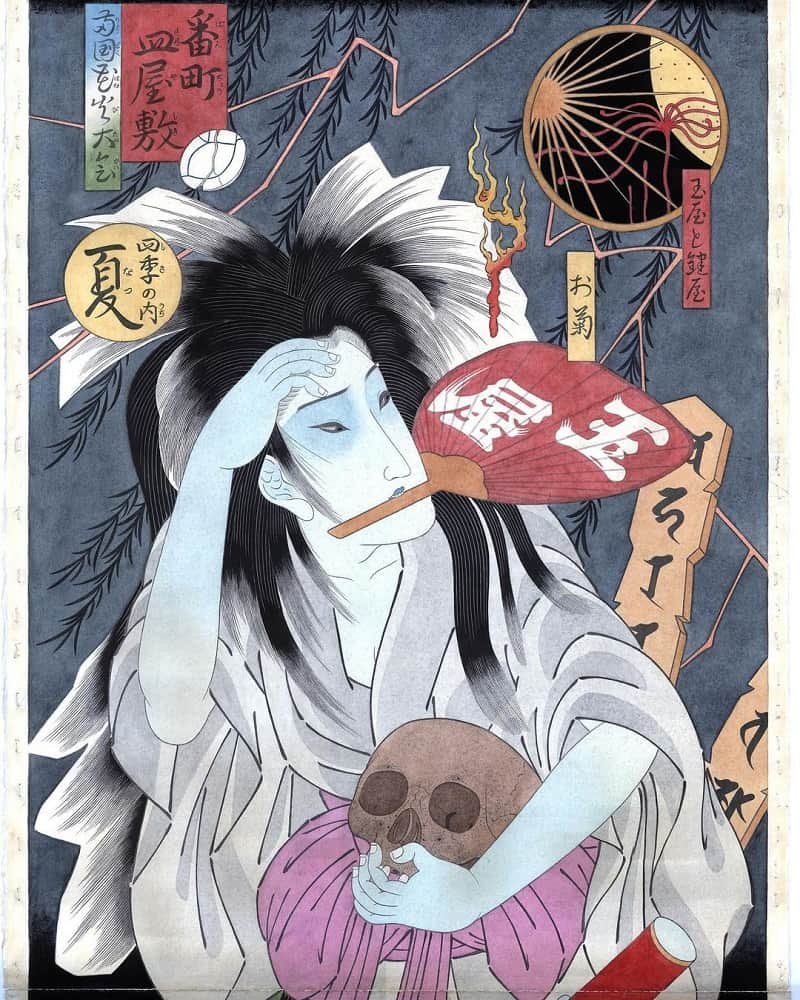
Are tattoos banned in Japan? (Japan guide with tattoos)
Contents:
Since tattoos are completely legal and normalized in the US (and other Western countries), it can be easy to forget that other countries and cultures around the world may have a different attitude towards body art.
Generally speaking, in almost all parts of the world, tattoos were considered forbidden, illegal, associated with crime, and generally frowned upon. Of course, in some parts of the world, tattoos have always been an accepted cultural phenomenon openly welcomed and forbidden by people. We are all different, and this is the beauty of such different views and cultures.
However, as great as it sounds, tattoos are still frowned upon in some parts of the world. Even in the West, some employers, for example, do not hire people with visible tattoos, as they can "influence" the public perception of the company in one way or another; for some people, especially the older generation, tattoos are still associated with crime, inappropriate behavior, problematic behavior, etc.
In today's topic, we decided to explore the status of tattoos in the Far East itself; Japan. Now Japan is world famous for its incredible tattoo styles revolving around historical and cultural symbols. However, most of us know that tattoos in Japan are often worn by members of the Japanese mafia, which is not a good start if we are talking about the fact that tattoos are prohibited there.
But we decided to find out if this is true or not, let's get down to business right away! Let's find out if tattoos are legal or illegal in Japan!
Are tattoos banned in Japan? (Japan guide with tattoos)

History of tattoos in Japan
Before we get to the main topic, it is necessary to delve a little into the history of tattoos in Japan. The now internationally recognized traditional Japanese art of tattooing was developed hundreds of years ago during the Edo period (between 1603 and 1867). The art of tattooing was called Irezumi, which literally translates to "insert ink," a term the Japanese used during this period to refer to what is currently known as tattoos.
Now Irezumi, or the traditional Japanese art style, was used to refer to people who had committed crimes. The meanings and symbols of tattoos varied from one region to another and depended on the type of crime committed. Tattoos can range from very simple lines around the forearm to bold, clearly visible kanji marks on the forehead.
It is important to note that the Irezumi tattoo style does not reflect true traditional Japanese tattoo art. Irezumi was clearly used for one purpose and even these days people just don't use the term in the context of tattoos.
Of course, Japanese tattoo art continued to evolve after the Edo period. The most notable evolution of Japanese tattooing has been influenced by the Japanese art of ukiyo-e woodblock prints. This art style included landscapes, erotic scenes, kabuki actors, and creatures from Japanese folk stories. Since the art of ukiyo-e was widespread, it quickly became an inspiration for tattoos throughout Japan.
As Japan entered the 19th century, criminals weren't the only ones to wear tattoos. It is known that Skonunin (jap. master) had tattoos, for example, along with civilian firefighters. For firefighters, tattoos were a form of spiritual protection from fire and flames. The city couriers also had tattoos, as did the kyokaku (street knights who protected the common people from criminals, thugs and the government. They were the ancestors of what we today call the yakuza).
When Japan began to open up to the rest of the world during the Meiji era, the government was concerned about how foreigners perceived Japanese customs, including punitive tattoos. As a result, punitive tattooing was banned, and tattooing was generally forced to go underground. Tattoos soon became a rarity and, ironically, foreigners were more interested in Japanese tattoos, which was no doubt contrary to the goals of the Japanese government at the time.
The tattoo ban continued throughout the 19th and half of the 20th century. It wasn't until the arrival of American soldiers in Japan after World War II that the Japanese government was forced to lift the ban on tattoos. Despite the "legalization" of tattoos, people still have negative associations associated with tattoos (which have existed for hundreds of years).
In the second half of the 20th century, Japanese tattoo artists began to establish connections with tattoo artists around the world, exchanging experiences, knowledge, and the art of Japanese tattooing. Of course, this was also the time when Japanese yakuza films appeared and became popular in the West. This may be the main reason why the world associates Japanese tattoos (Hormimono - tattoos on the whole body) with the yakuza and the mafia. However, people all over the world have recognized the beauty and craftsmanship of Japanese tattoos, which to this day are among the most popular tattoos around the world.
Tattoos in Japan today - illegal or not?
Fast forward to today, tattoos are still completely legal in Japan. However, there are some issues that tattoo enthusiasts face when choosing a tattoo or even a tattoo business.
Being a tattoo artist in Japan is legal, but incredibly difficult. On top of all the time, energy, and money consuming obligations, to become a tattoo artist, Japanese tattoo artists must also obtain a medical license. Since 2001, the Ministry of Health, Labor and Welfare has stated that any practice involving needles (insertion of needles into the skin) can only be performed by a licensed medical practitioner.
That's why in Japan you can't just stumble upon a tattoo studio; tattoo artists keep their work in the shadows, mainly because most of them do not have a license as a medical practitioner. Fortunately, in September 2020, the Supreme Court of Japan ruled in favor of tattooists who do not have to be doctors to be tattooists. However, the previous struggles still remain as tattoo artists tend to face public criticism and prejudice as many Japanese (of the older generation) still associate tattoos and the tattoo business with the underground, crime and other negative associations.
For the tattooed, especially those with visible tattoos, life in Japan can also be difficult. Although tattoos are completely legal in Japan, the reality of tattooing and finding a job or even trying to form a social connection with others shows how tattoos can affect the quality of life. Unfortunately, employers are much less likely to hire you if you have a visible tattoo, and people will judge you by your appearance, freely assuming that you are connected to crime, the mafia, the underground, etc.
Negative associations with tattoos go as far as the government banning athletes from competition if they have visible tattoos.
Of course, the situation in Japan is changing slowly but noticeably. Youth in particular play an important role in raising awareness of the mistreatment of tattoo artists and people with tattoos in Japanese public life. Discrimination, although waning, is still present and affects the lives of young people.
Tattooed foreigners in Japan: illegal or not?

Now, when it comes to tattooed foreigners in Japan, things are pretty simple; follow the rules and everything will be fine. Now, what do we mean by "rules"?
Japan has a rule for everything, even tattooed foreigners. These rules include;
- You may not enter a building or facility if there is a "No Tattoos" sign at the entrance, given that your tattoos are visible. You will be taken out of the building, whether or not you have even the tiniest tattoo in the world; A tattoo is a tattoo, and a rule is a rule.
- You need to cover up your tattoos if you enter traditional historical sites such as shrines, temples, or ryokan. Even if there is no “No Tattoos” sign at the entrance, you still need to disguise yourself. So try to carry a scarf in your backpack, or just wear long sleeves and trousers if possible (if you know you'll be visiting those attractions on that particular day).
- Your tattoos may be visible. Walking around the city is quite normal, given that tattoos, of course, do not contain offensive symbolism.
- Tattoos are not allowed in places like hot springs, swimming pools, beaches, and water parks; this applies to tourists and even the smallest tattoos.
What if I want to get a tattoo in Japan?
If you are a foreigner living in Japan, you may already be aware of the risk a tattoo can pose to your current or future job. For tourists or foreigners looking to take the jump, we have compiled the most important information you will need to get a tattoo in Japan;
- Finding a tattoo artist in Japan is a slow process; be patient, especially if you want to get a tattoo in the traditional Japanese style. However, make sure you don't engage in cultural appropriation; if you are not of Japanese origin, try not to get a traditional or culturally significant tattoo. Instead, look for tattoo artists who do old school, realistic, or even anime tattoos.
- Be prepared for a waiting list; Tattoo artists are very booked in Japan so be prepared to wait. Even when you first contact a tattoo artist, be sure to give them time to respond. Most tattoo artists in Japan don't speak English very well, so keep that in mind.
- Tattoos in Japan can cost anywhere from 6,000 yen to 80,000 yen, depending on the size, color scheme, tattoo style, etc. You may be required to pay a refundable amount of yen 10,000 to 13,000 yen for an appointment schedule or a custom design. If you cancel an appointment, don't expect the studio to return the deposit.
- Be sure to discuss the number of tattoo sessions with the tattoo artist or studio. Sometimes a tattoo can take several sessions, which can increase the final cost of the tattoo. It can also be very inconvenient for backpackers and travelers, so if you are planning a short stay in Japan, you need to know this important information right now.
- Don't forget to learn useful Japanese vocabulary to make it easier for you to communicate with tattoo artists. Try learning a few basic tattoo related phrases or have someone translate for you.
Japanese tattoo terminology

Here is some useful Japanese tattoo terminology that you can use to contact a tattoo artist and explain that you want to get a tattoo;
tattoo/tattoo (Irezumi): Literally "insert ink" are traditional Japanese-style tattoos similar to those worn by the yakuza.
tattoo (battleship): Similar to Irezumi, but often refers to machine-made tattoos, Western-style tattoos, and tattoos worn by foreigners.
sculptor (horishi): Tattoo artist
hand carving (Tebori): A traditional tattoo style using bamboo needles soaked in ink, which are inserted into the skin by hand.
Kikaibori: Tattoos made with a tattoo machine.
Japanese carving (wabori): Tattoos with Japanese designs.
Western carving (yobori): Tattoos with non-Japanese designs.
fashion tattoo (trendy tattoos): Used to distinguish between tattoos worn by criminals and tattoos worn by other people "for fashion".
one item(wan-pointo): Small individual tattoos (for example, no larger than a deck of cards).
XNUMX% engraving (gobun-hori): half sleeve tattoo, from shoulder to elbow.
XNUMX% engraving (Shichibun-hori): Tattoo ¾ sleeve, from the shoulder to the thickest point of the forearm.
Shifen Carving (jubun-hori): Full sleeve from shoulder to wrist.
Final thoughts
Japan is not yet fully open to tattoos, but the nation is on its way. Even though tattoos are legal, they can be a little confusing for even the most ordinary people. Tattoo rules apply equally to everyone, especially tourists and foreigners. So, if you are planning to visit Japan and you have tattoos, be sure to pay attention to the rules. If you are going to Japan to get a tattoo there, be sure to do your research thoroughly. In general, we wish you good luck!
Leave a Reply